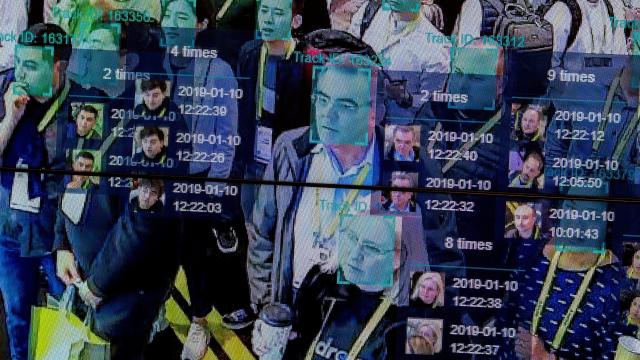Clearview AI, the notorious facial recognition company which has partnered with over 2,400 law enforcement agencies across the U.S, is about to receive a patent for what it describes as a first of its kind, “search engine for faces.”
Politico, which was the first to discover the patent originally filed in August 2020, determined the U.S. Patent and Trademark Office had sent Clearview a notice of allowance last week. That means Clearview essentially has the patent in the bag so long as it pays its administrative fees. And with well over $US38 ($54) million raised so far in funding according to Crunchbase, paying the bill shouldn’t be a problem.
In an interview with Politico, Clearview CEO Hoan Ton-That claimed his company’s tool would represent the first of its kind to use “large-scale internet data.” That translates to, the first facial recognition service to scrape billions of photos from social media and other publicly available databases, almost always without users’ consent. That sweeping database of faces includes somewhere around 10 billion images, according to Ton-That.
Privacy advocates and researchers oppose the patent and worry it could normalize Clearview’s data scraping practices before lawmakers have a chance to pass meaningful data privacy regulations constraining the technology.
“The part that they’re looking to protect is exactly the part that’s the most problematic,” Amnesty International researcher Matt Mahmoudi told Politico. “They are patenting the very part of it that’s in violation of international human rights law.”
Though a handful of cities and some states have passed legislation limiting the use of facial recognition, the U.S. still lacks a comprehensive federal privacy standard. Nonetheless, patents around facial recognition generally are growing. Between 2015 and 2019, the USPTO reportedly granted around 5,000 patents related to the technology, Politico notes.
In a Tweet, author and former Facebook investor Roger McNamee described Clearview’s efforts as, “a perfect example of our broken patent/copyright system.”
And while Clearview recently told CNET it does not intend on creating a consumer-grade version of its products, the patent filing includes details that appear to go beyond the scope of traditional law enforcement, like business or dating.
The patent comes as Clearview continues to solidify itself as one of the hottest new tools for U.S. law enforcement despite little meaningful federal data privacy oversight. A series of BuzzFeed investigations conducted earlier show just how prevalent Clearview has become, noting individuals at 1,803 public agencies had used the technology in the last year. The FBI, Department of Homeland Security and ICE have all once called themselves Clearview clients.
At the same time, public opposition against Clearview (and facial recognition generally) has grown. Just last week, the UK’s Information Commissioner’s Office provisionally fined the company £17 million for allegedly breaching UK data protection laws. That ruling came weeks after Australia (the birthplace of Ton-That) ordered Clearview to cease data scraping in the country after determining it had violated the country’s privacy protections.
Before that, the company was pressured to retreat from Canada last year following a pair of federal investigations into its business. Privacy groups in Austria, France, Greece, Italy, and the UK have taken legal action against the company and filed complaints with their respective regulators. Private companies have pushed back against Clearview as well. Google and Youtube, along with LinkedIn, Twitter, and Venmo, all sent cease and desist orders to Clearview in 2020 demanding the company quit scraping images from its platforms without the consent of participating companies or their users.
